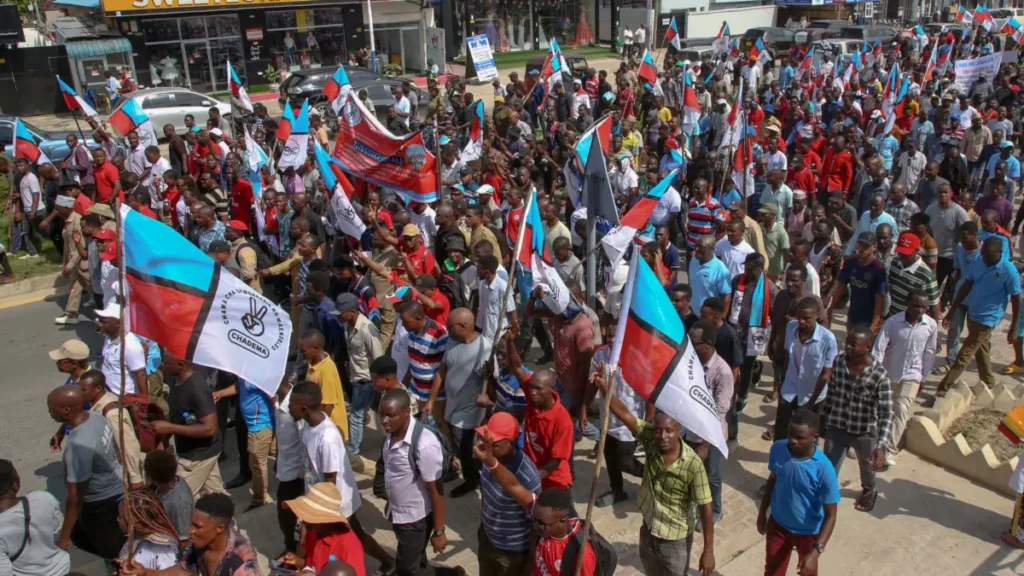Tanzania’s Democracy Tested Amid Rising Political Tensions: Chadema Defies Protest Ban
Political tensions in Tanzania have reached unprecedented levels as the main opposition party, Chadema, challenges a government-imposed ban on protests in Dar es Salaam. The unfolding conflict marks a crucial moment for the nation’s democracy, with broad implications for its political landscape.
Chadema, which stands for Party for Democracy and Progress in Swahili, had organized a demonstration to protest the recent disappearances of political activists. This planned mobilization came after the murder of a prominent party leader, Ali Mohamed Kibao, whose killing has intensified public dissatisfaction with the government.
In response to the planned demonstration, Tanzanian authorities arrested key opposition figures, including Chadema’s vice president, Tundu Lissu. Access to the residence of the party president, Freeman Mbowe, was also blocked. Videos circulating on social media showcase anti-riot police and water cannons stationed at strategic points throughout Dar es Salaam, creating a tense atmosphere in the economic capital.
The current administration, led by President Samia Suluhu Hassan, faces accusations from the opposition of reverting to the authoritarian practices of her predecessor, John Magufuli. This sentiment is exacerbated by a crackdown on an August protest, which saw the arrest of 520 individuals affiliated with Chadema.
International reaction to Tanzania’s handling of the political unrest has been one of concern. Western countries and non-governmental organizations have criticized the government’s tactics, urging respect for democratic principles and human rights. However, President Hassan has firmly rejected this foreign criticism, asserting the government’s stance on the situation.
Adding to concerns about human rights, the Tanganyika Law Society has reported 83 abductions or disappearances between 2016 and 2024. This troubling statistic highlights ongoing challenges within the country, further emphasizing the stakes of the current political standoff.
Despite the clear risks, Chadema has maintained its call for a "peaceful mourning" demonstration, openly defying the government ban. This act of defiance underscores the deep divisions within Tanzanian society and puts the nation’s commitment to democratic governance to the test.
What emerges from this high-stakes confrontation is not merely a struggle between an opposition party and the state but a broader question about the future of democracy in Tanzania. The government’s response to these protests will likely play a decisive role in shaping the political landscape in the coming months.
For more information on Chadema, visit their official website.
